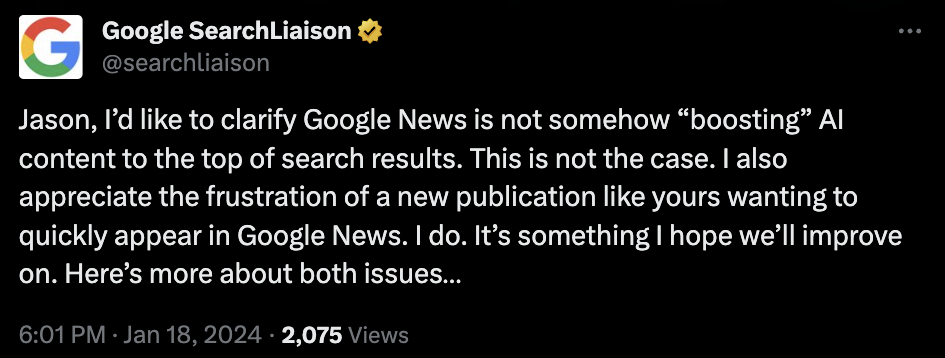A recent report from 404media.co alleged that “Google News is boosting sites that rip-off other outlets by using AI to rapidly churn out content.”
While Danny Sullivan, Google’s SearchLiaison, offered an official response to the claim, it doesn’t offer a complete explanation as to why some domains outrank others in the news.
This article will explore some of those reasons, along with specific SEO tips for publishers, journalists, and reporters who want to rank higher in search results.
Is Google Boosting AI-Generated Content?
No, Google is not doing anything to manually push certain pieces of content to the top of search results, according to Google SearchLiaison on X.
Rather, the Google algorithm uses specific ranking factors to determine what content should appear first in search results.
5 Reasons Why A News Article Ranks Well In Google Search And Discover
Using some examples mentioned in the 404 Media report, here are a few explanations as to why AI-generated content, duplicate content, syndicated content, content aggregators, and content thieves outrank original news sources.
1. Recency
One of the first explanations offered by Google SearchLiaison for AI-generated content outranking other publishers is the recency of news content when sorted by date.
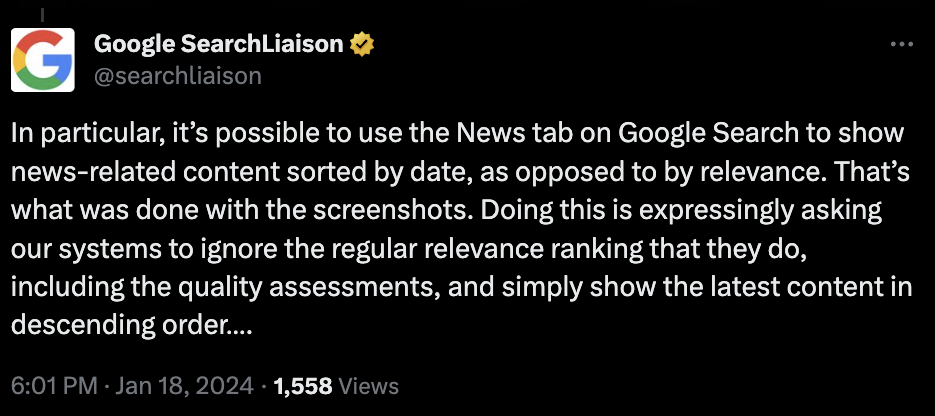 Screenshot from X, January 2024
Screenshot from X, January 2024Here are two sites that rank as the top stories in news for ESPN Spectrum.
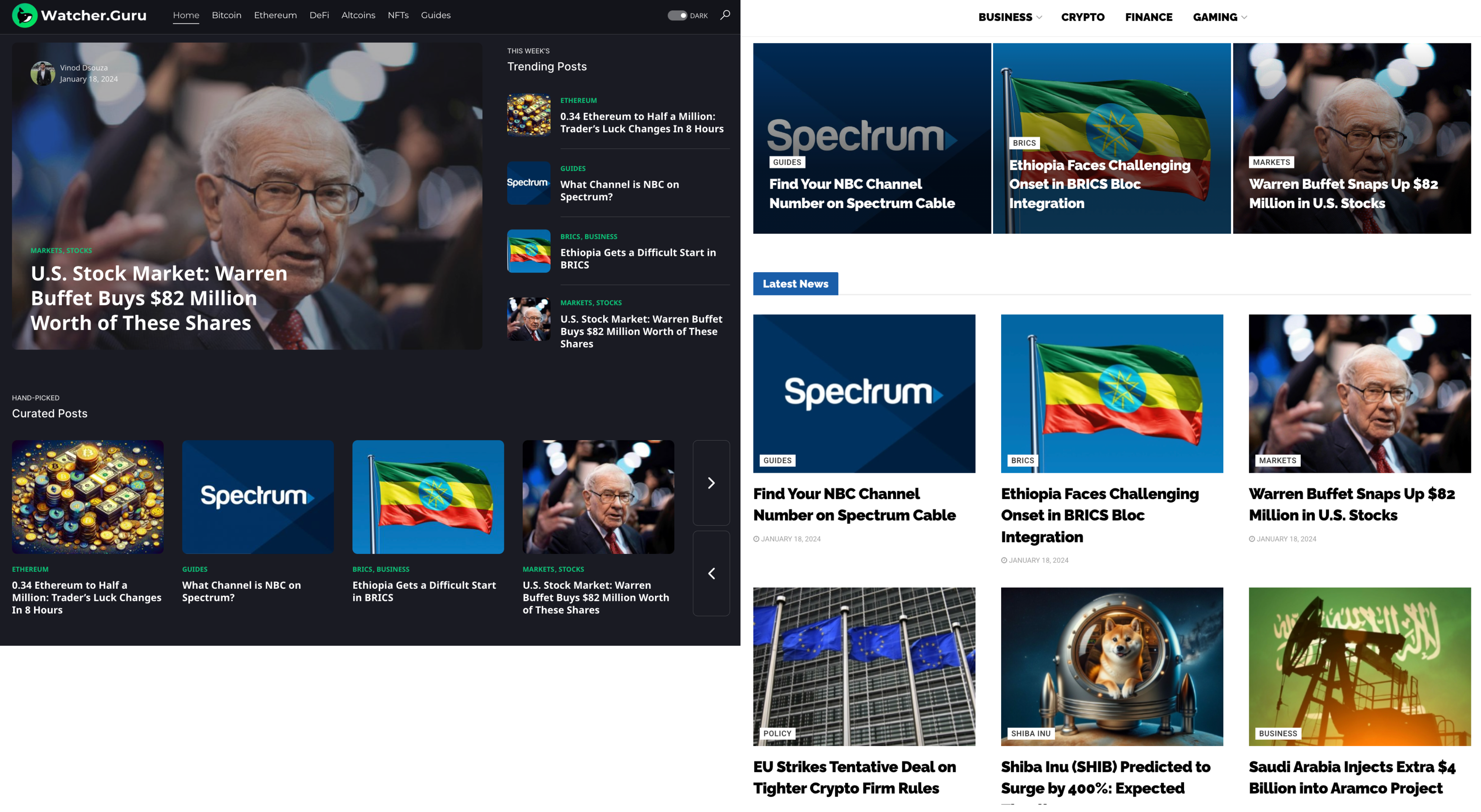 Screenshots from Watcher.guru & Examiner, January 2024
Screenshots from Watcher.guru & Examiner, January 2024Both sites outrank CNET, Kiplinger, and The Verge, likely due to their recency.
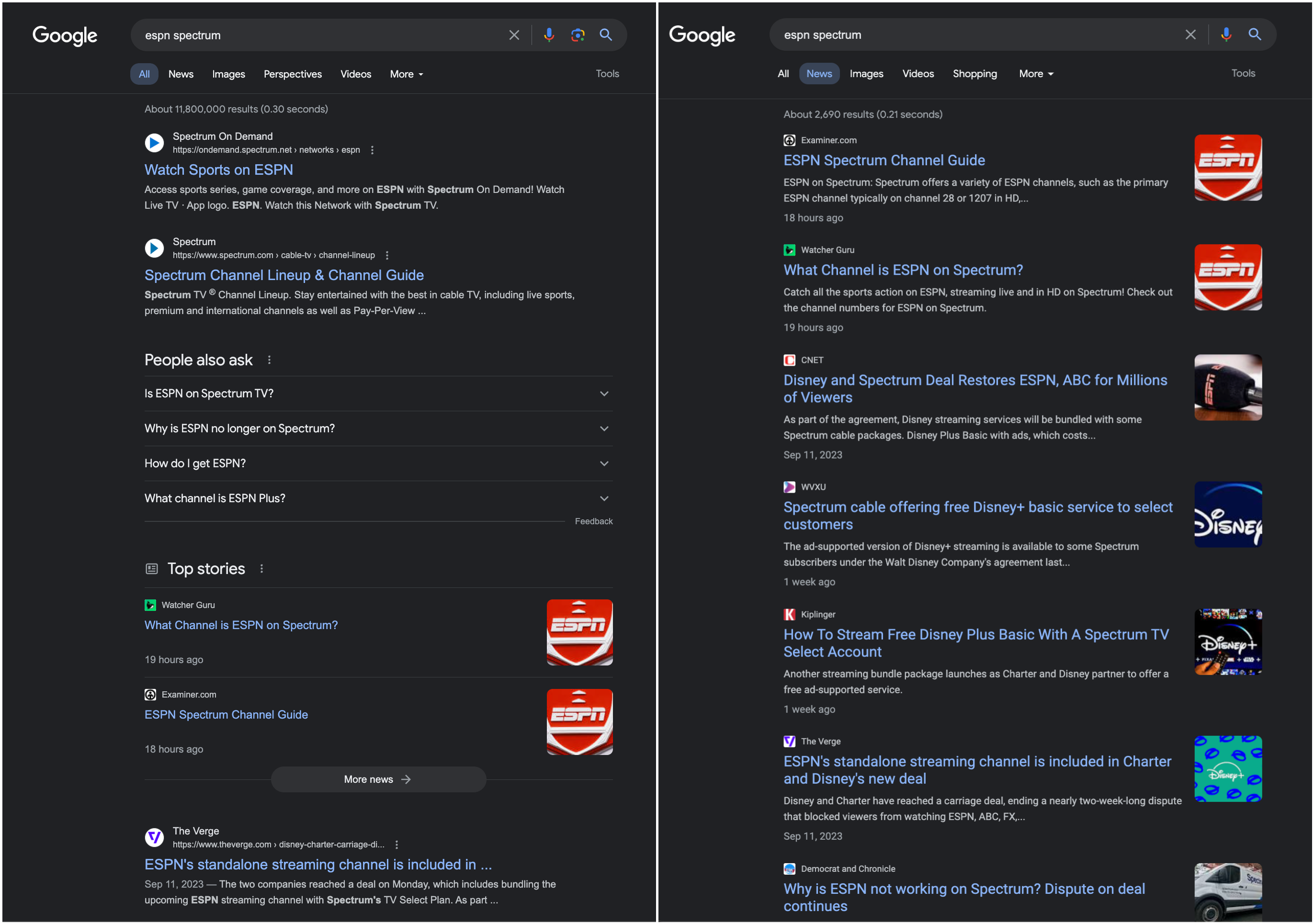 Screenshot from Google, January 2024
Screenshot from Google, January 2024Originality.ai’s content scanner was 100% confident that one site’s content was AI-generated, while it was only 52% confident about the other’s. The latter site offered a disclaimer about using AI in content creation.
 Screenshot from Originality.ai, January 2024
Screenshot from Originality.ai, January 2024How do other search engines compare? Here’s a look at Bing’s main search results.

Screenshot from Bing, January 2024Watcher.guru appears further down the page in Bing’s search results, but not in news.
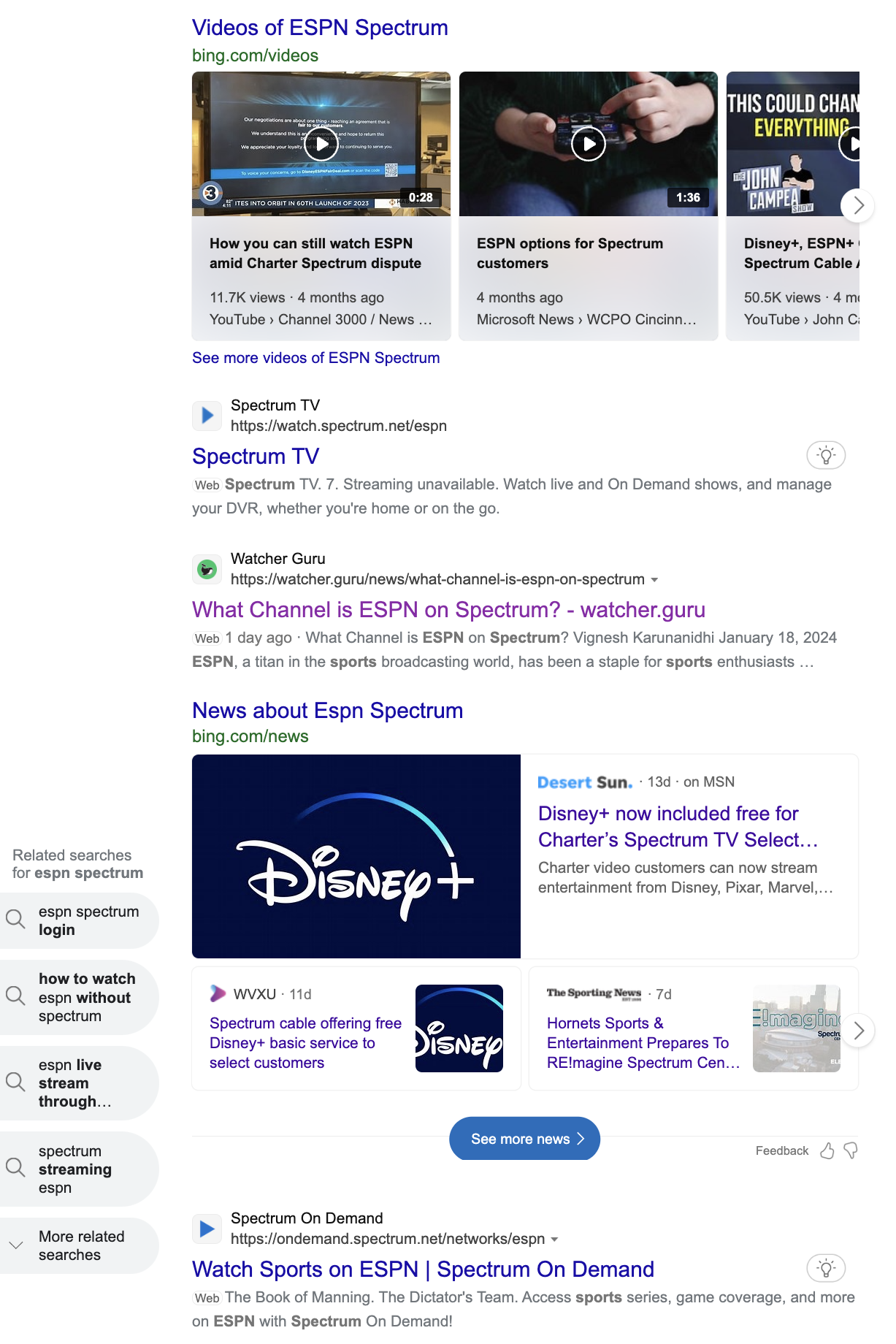 Screenshot from ChatGPT, January 2024
Screenshot from ChatGPT, January 2024The domain also appears as one of the sources in a ChatGPT response about the topic.
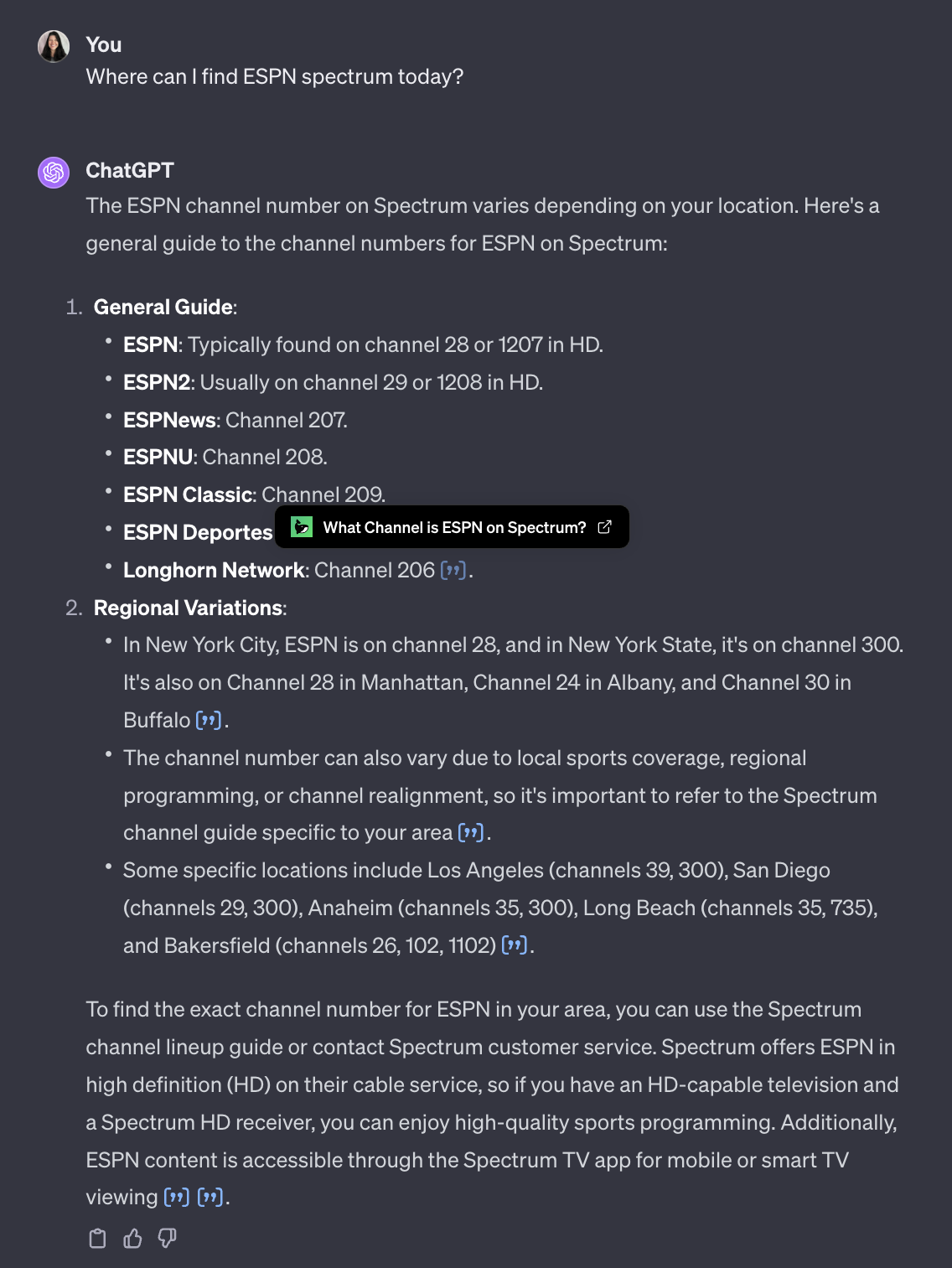 Screenshot from ChatGPT, January 2024
Screenshot from ChatGPT, January 2024While Originality.ai was only 62% sure about one, it was 100% confident the other three sources were AI-generated.
2. Domain Age & Backlinks
Now, let’s step back from the content and analyze a few metrics about the domains in the above example.
Watcher.guru has stronger authority and visibility in Google Search, according to Semrush. But the domain is only nine years old.
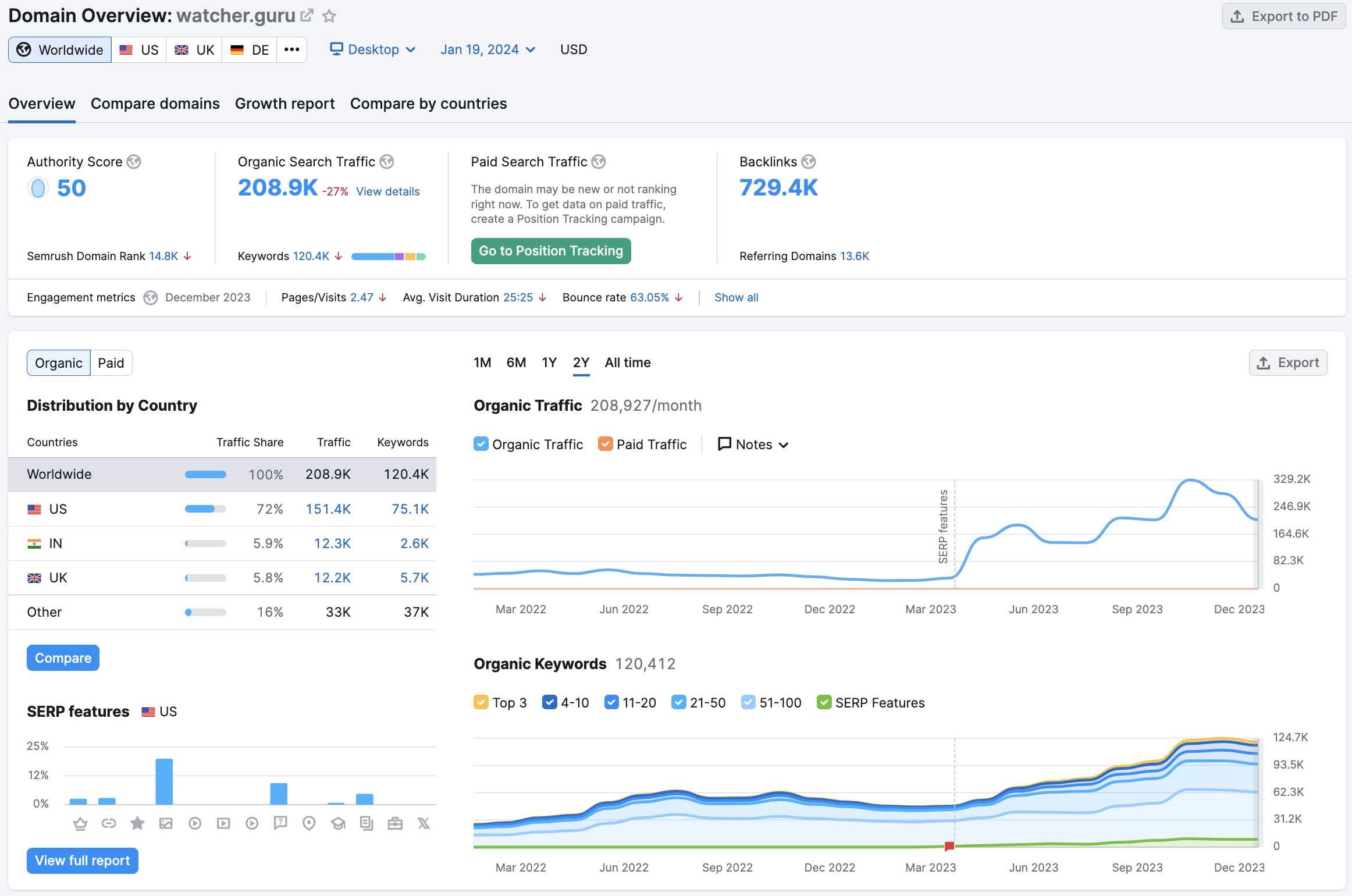 Screenshot from Semrush, January 2024
Screenshot from Semrush, January 2024Comparatively, Examiner.com has more referring domains and backlinks along with 19 years of domain history.
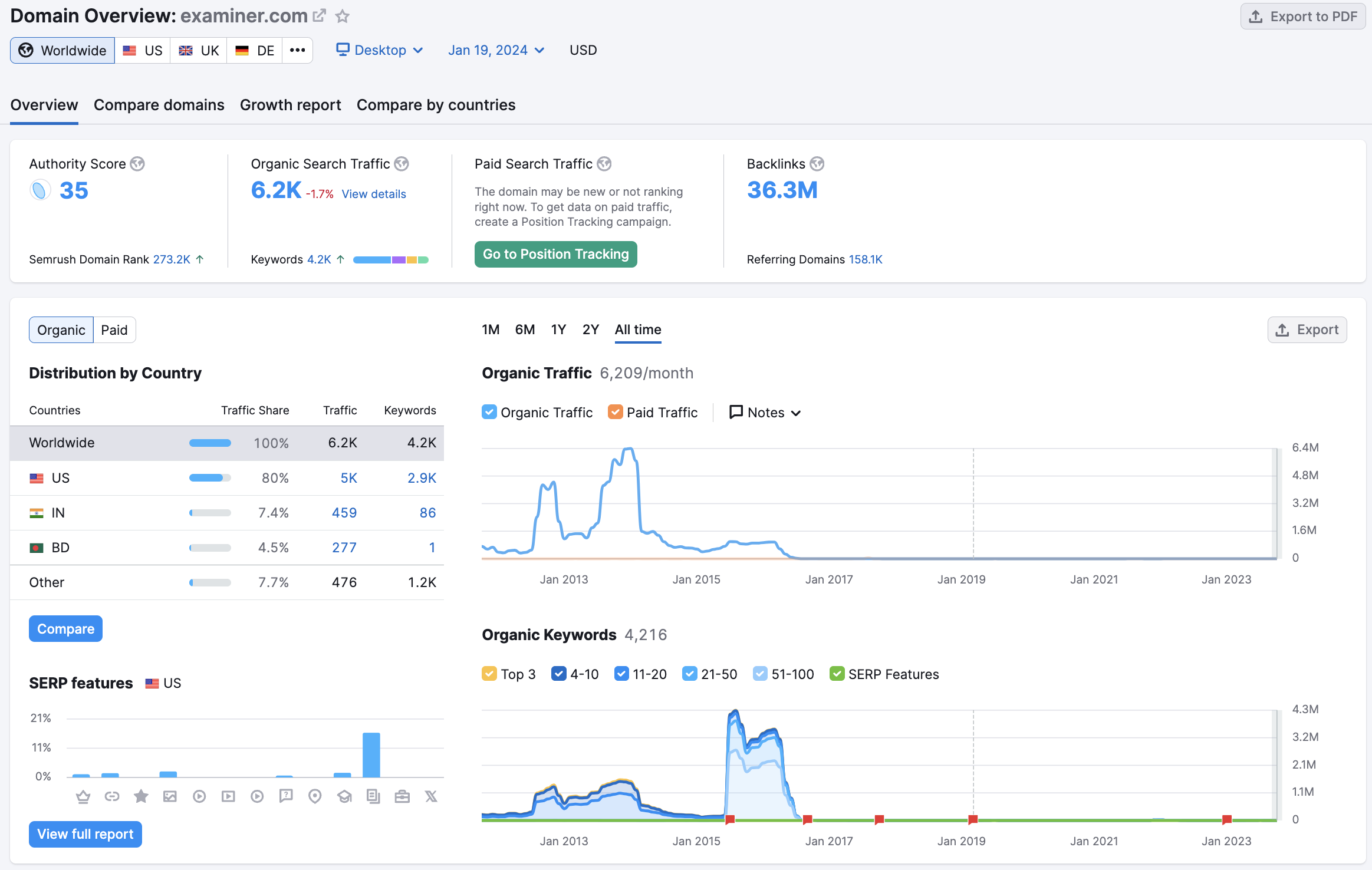 Screenshot from Semrush, January 2024
Screenshot from Semrush, January 2024Of course, the strength of the domain has not helped Examiner.com in organic traffic and keywords over the years. It only occasionally helps the site in Google news results.
3. Relevance
When search results are not sorted by date, relevancy becomes a key factor in search results.
While not related to AI-generated content, Google Search Advocate John Mueller once noted that syndicated content could outrank original news sources because of the content on the website surrounding it.
Effectively, websites that republish your news articles could outrank you because they have context in the header, sidebar, surrounding articles, or footer that is more relevant to the user’s search query than your site’s.
Here’s another example. When I searched for streaming NFL live, the following news stories appeared after the official NFL.com website and YouTube videos related to the query.
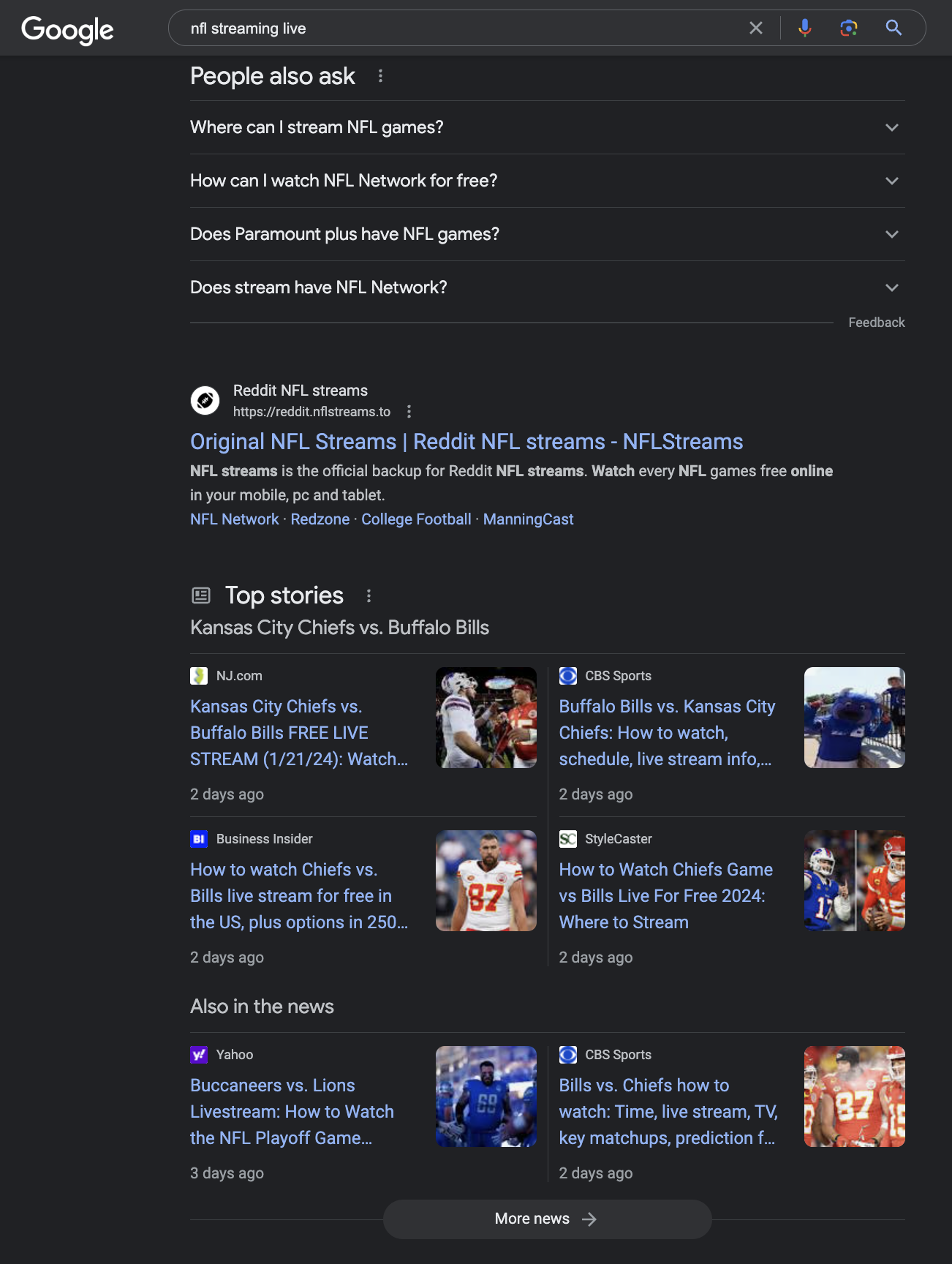 Screenshot from Google, January 2024
Screenshot from Google, January 2024The Yahoo Entertainment article is from Rolling Stone magazine.
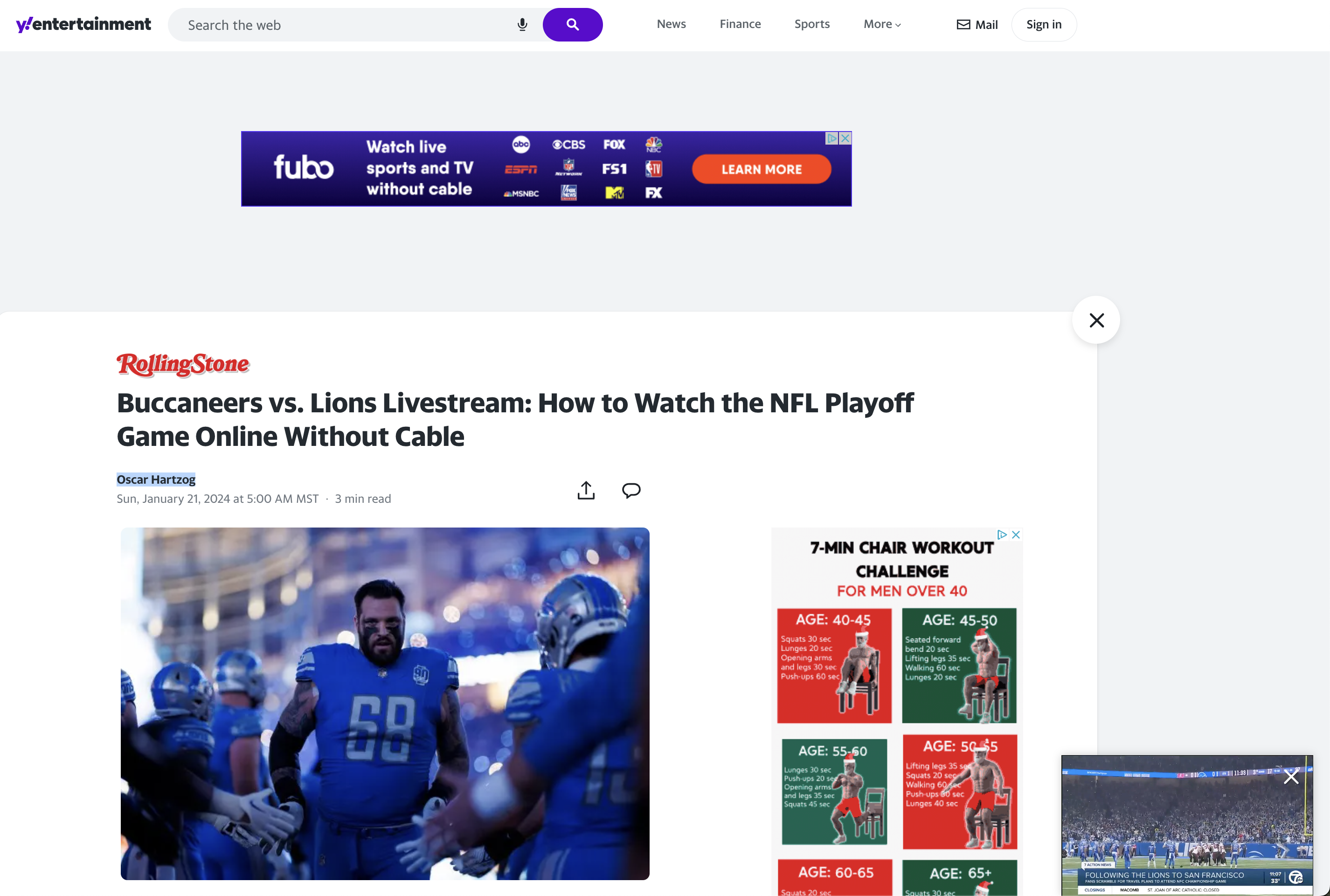 Screenshot from Yahoo, January 2024
Screenshot from Yahoo, January 2024On the same page as the Yahoo article is a navigation menu with a Sports section, an auto-playing video clip from a recent NFL game, and more related NFL news following the article.
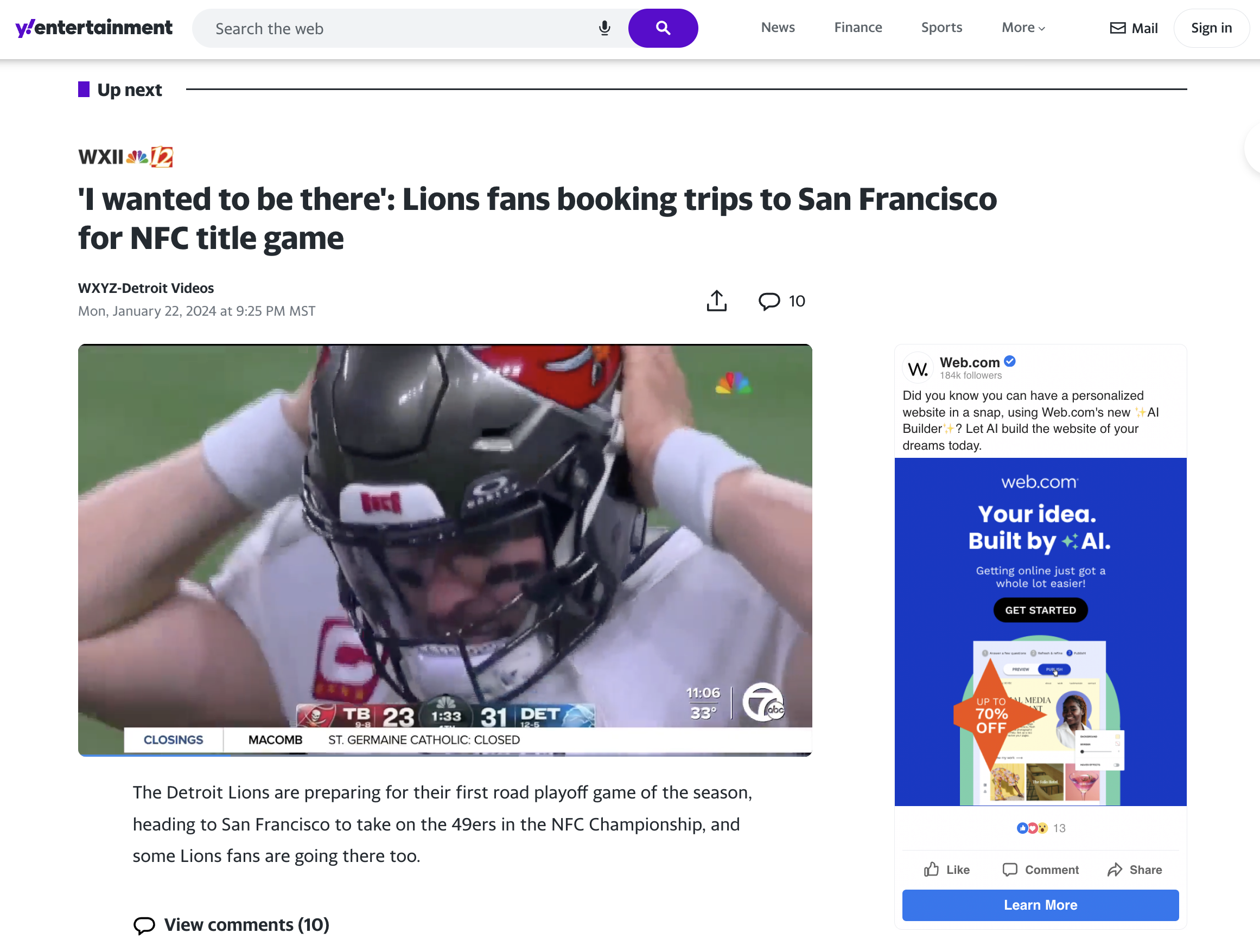 Screenshot from Yahoo, January 2024
Screenshot from Yahoo, January 2024Now, let’s compare Yahoo’s page with the Rolling Stone article to the actual article on Rolling Stone’s website.
- The main menu does not have a sports section in its main menu.
- The latest news in the sidebar covers politics and entertainment.
- The article is followed by more news suggestions in fashion, music, education, and travel.
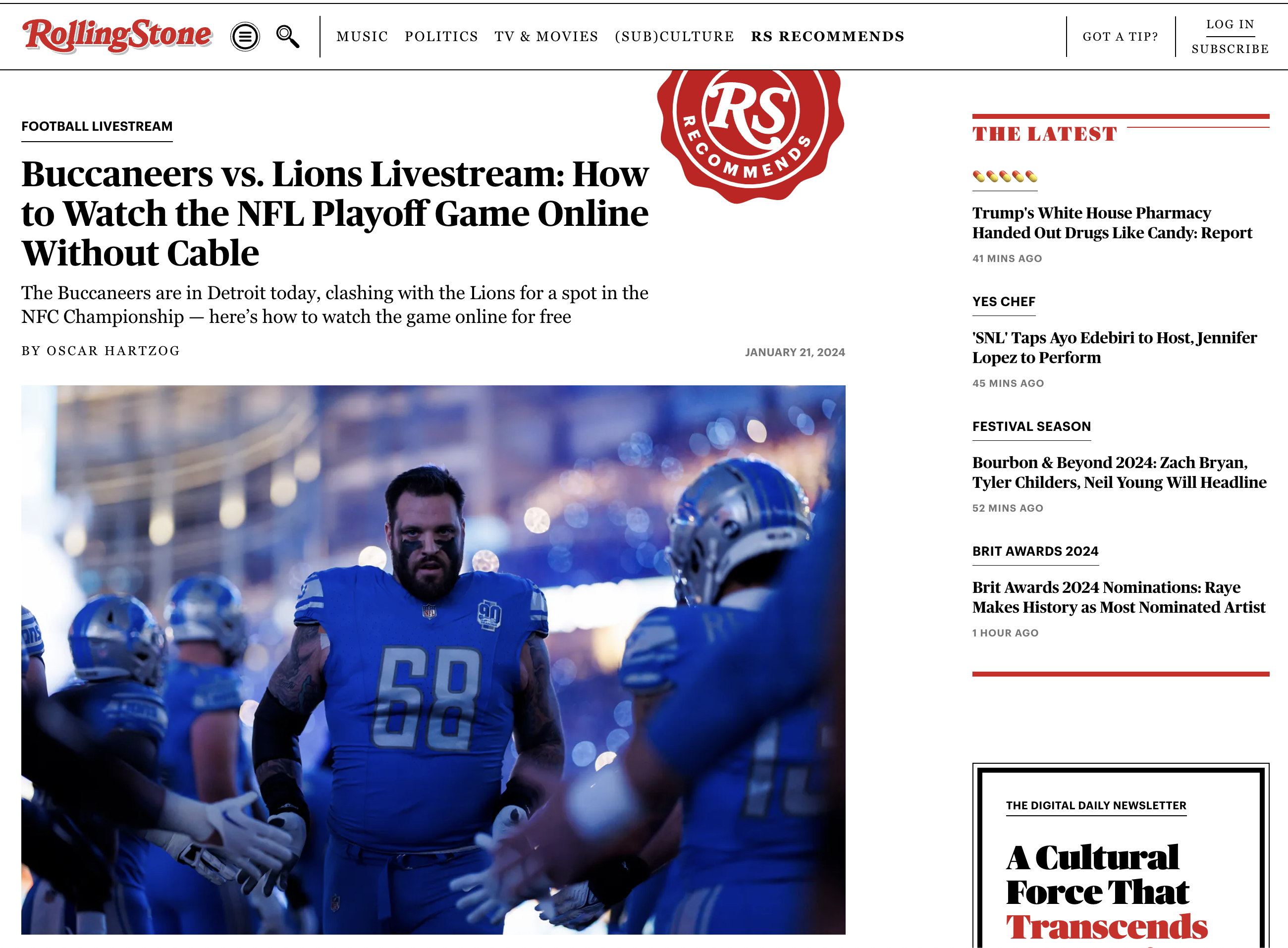 Screenshot from Rolling Stone, January 2024
Screenshot from Rolling Stone, January 2024This makes the Yahoo version of the Rolling Stone article more relevant to users searching for keyword phrases with NFL.
Regarding domain age, Rolling Stone (created on September 21, 1994) is three months older than Yahoo.
What Yahoo does have: 7B backlinks from 2.3M referring domains, compared to Rolling Stone with 60M backlinks from 352K referring domains.
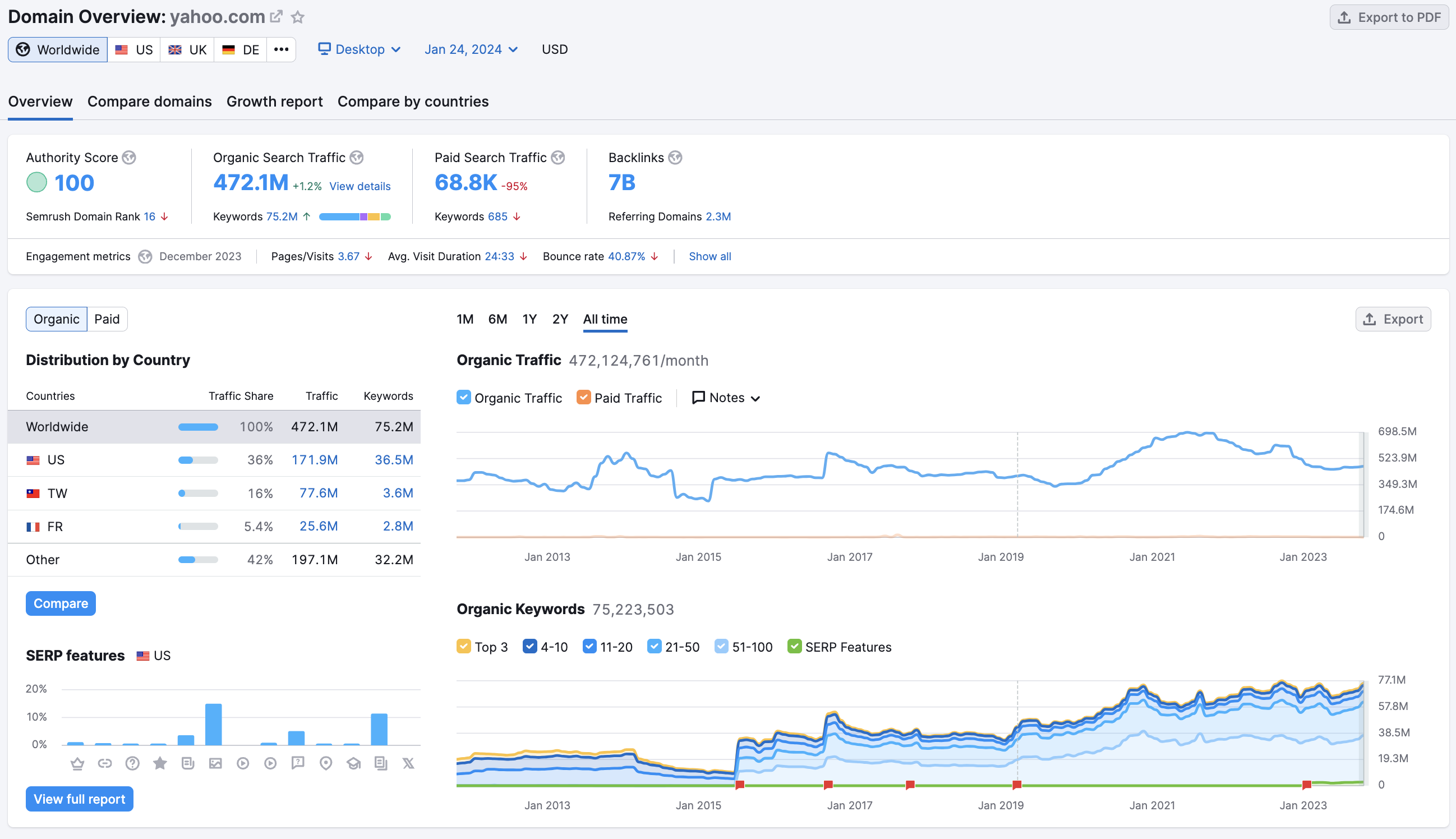 Screenshot from Semrush, January 2024
Screenshot from Semrush, January 20244. Crawler Access
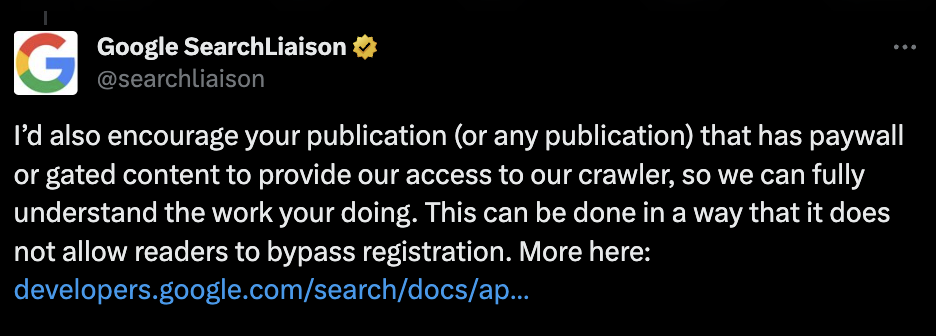 Screenshot from X, January 2024
Screenshot from X, January 2024A quick way to check if Google has access to content on a specific domain is the site:domain.com keyword search.
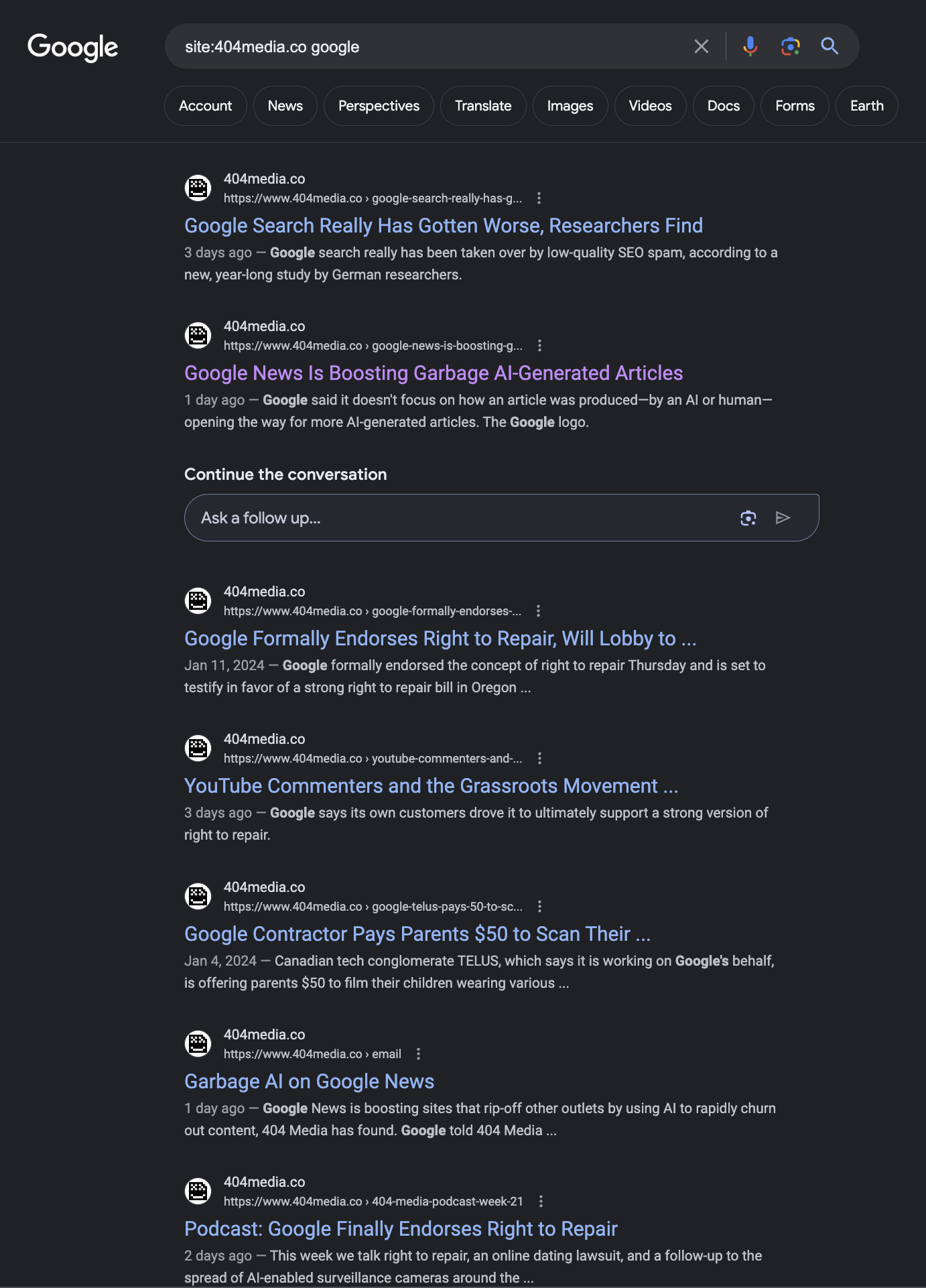 Screenshot from Google, January 2024
Screenshot from Google, January 2024Getting Google to index website content is only half of the battle.
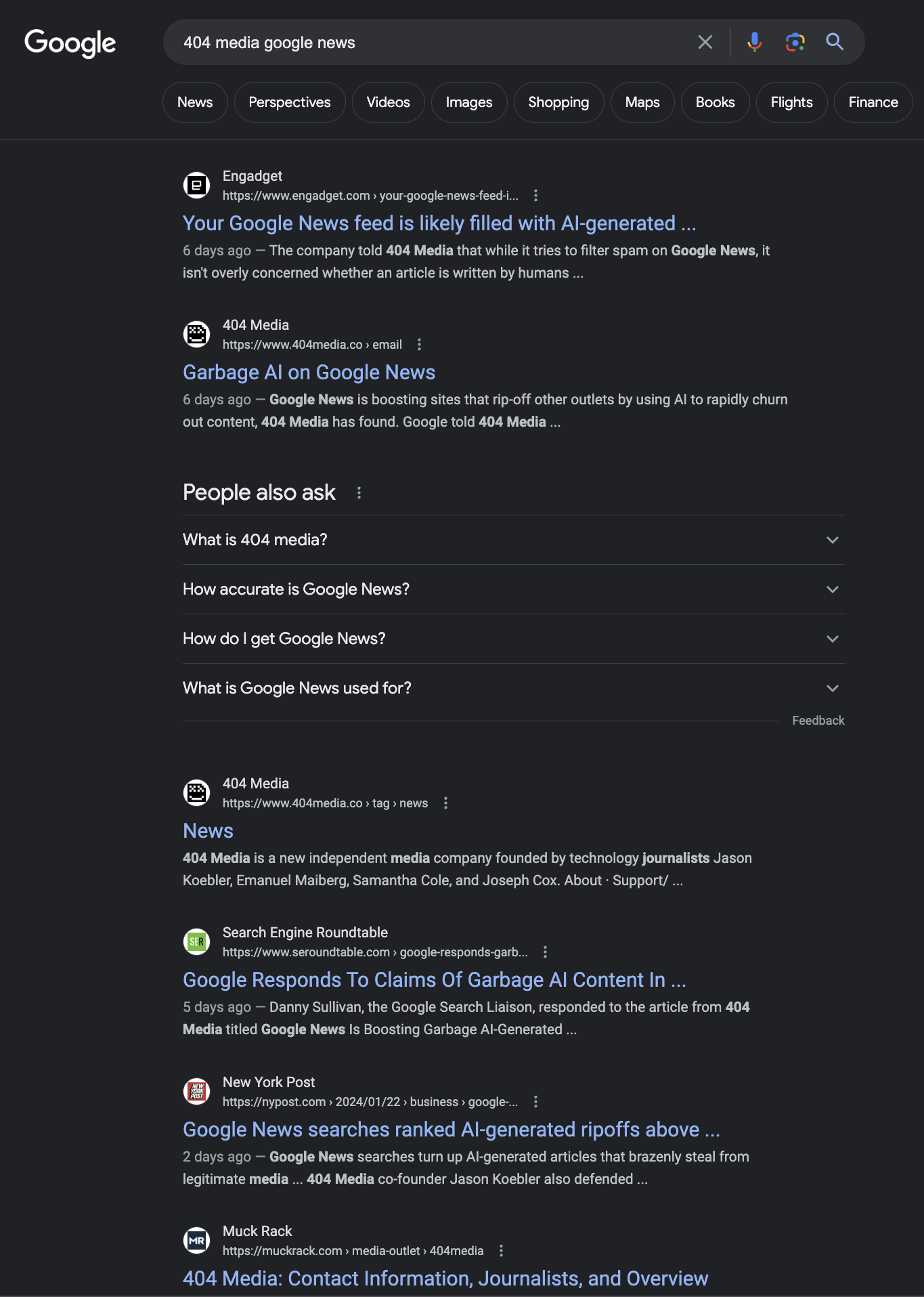 Screenshot from Google, January 2024
Screenshot from Google, January 2024Getting Google to place a specific page from your website at the top of search results for a specific keyword query is the real challenge.
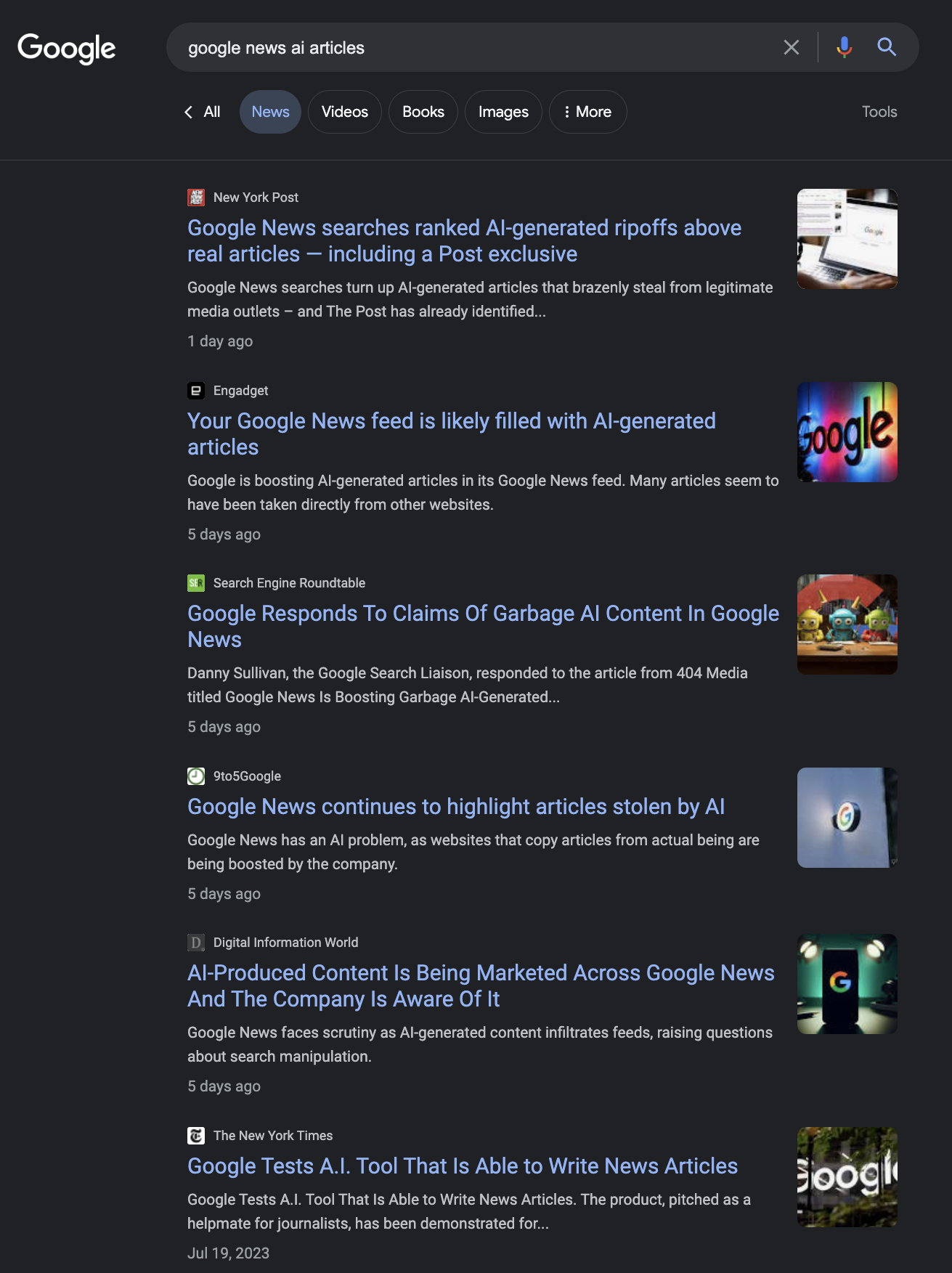 Screenshot from Google, January 2024
Screenshot from Google, January 20245. Topics API
The Topics API is part of Google’s Privacy Sandbox initiative to enhance user privacy.
“In the past, third-party cookies and other mechanisms have been used to track user browsing behavior across sites to infer topics of interest. These mechanisms are being phased out.
With the Topics API, the browser observes and records topics that appear to be of interest to the user, based on their browsing activity. This information is recorded on the user’s device. The Topics API can then give API callers (such as ad tech platforms) access to a user’s topics of interest, but without revealing additional information about the user’s browsing activity.”
While Google designed this feature for ad targeting after third-party cookie depreciation, one has to wonder if a website’s classification also affects its placement with similar websites in Google News.
The following is a comparison of 404media.co vs. the sites that ranked in Google News for the topic at hand.
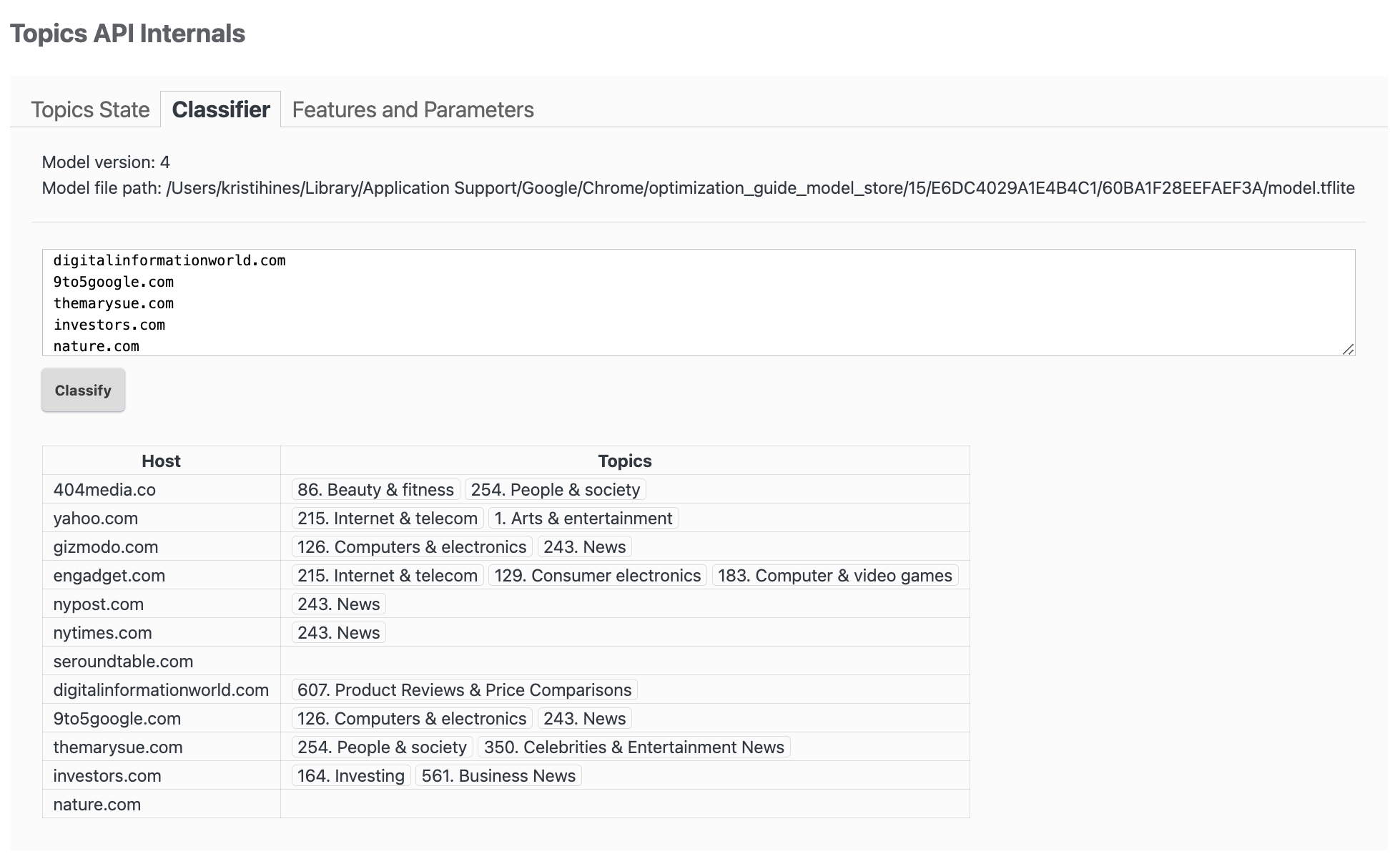 Screenshot from Google Chrome, January 2024
Screenshot from Google Chrome, January 2024Not A Ranking Factor: The Author
A recurring theme in search over the past is how Google would treat AI-generated content.
In April 2022, Mueller said that automatically generated content – including content created with generative AI tools – is against Google Search guidelines.
“My suspicion is maybe the quality of content is a little bit better than the really old school tools, but for us it’s still automatically generated content, and that means for us it’s still against the Webmaster Guidelines. So we would consider that to be spam.”
Fast forward to February 2023, when Google released guidance on AI-generated content. Specifically, Google stated that it would reward high-quality content, no matter how it was produced. Disclosures about generative AI content are “useful” when “reasonably expected.”
“AI or automation disclosures are useful for content where someone might think ‘How was this created?’. Consider adding these when it would be reasonably expected.”
A similar notion was shared in June 2023 about disclosures for AI-generated content and E-E-A-T.
“From Google’s point of view, it is not necessary to explicitly label AI-generated content as AI-generated content, as we evaluate the nature of the content.”
To further drive the point home, Google SearchLiason said in a post on X that author bylines are for users, not a ranking factor for Google Search.
“I know this will be a ‘simple, almost quaint answer’ but this part of the article is wrong nor cites us saying this. Google doesn’t somehow ‘check out our credentials.’”
4 SEO Tips For Outranking Competitors In Google News
It doesn’t matter if the website outranking you in search results is an AI-generated content farm or an established news agency. Any site that outranks you is your competition in search.
These tips are not guaranteed to work, but they certainly could help.
1. Check for technical issues that affect how search engines index your content.
Google offers tips, tools, and advice to help website owners troubleshoot technical SEO issues that can stop search crawlers from accessing and indexing website content.
2. Link to your own content in your articles with context.
One of the top ranking factors that help Google order results in search is links.
Google specifically suggests that website owners cross-reference their own content with internal links.
Internal links should use keyword-optimized anchor text like world’s oldest brie to give both readers and search engines context about the link.
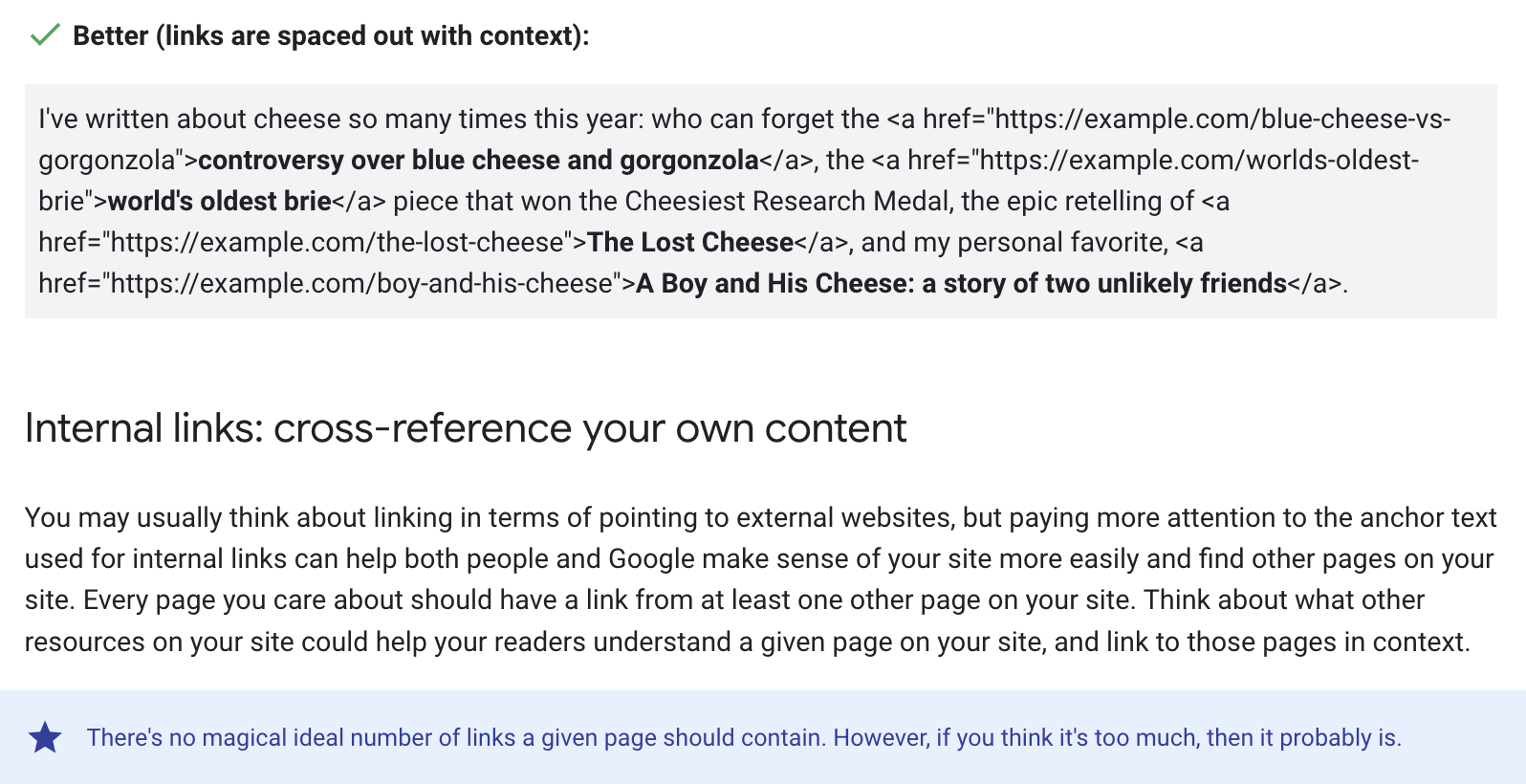 Screenshot from Google, January 2024
Screenshot from Google, January 2024In the paragraph below from the 404 Media report, there is an opportunity to add an internal link to one of 404 Media’s articles on CivitAI with the keyword anchor CivitAI.
 Screenshot from 404media.co, January 2024
Screenshot from 404media.co, January 2024Instead, there are two outgoing links – one to Google News and another to a publisher that outranks them in search results.
 Screenshot from Google News, January 2024
Screenshot from Google News, January 2024This leads to another important SEO tip about links.
3. Avoid linking to competitors.
As a general rule, do not link to websites that you do not want to rank well or better than your website in search results.
Just like internal links to your articles can optimize your content for search, external links to a competitor’s articles can optimize the competitor’s content for search.
If you think a site has stolen content or not properly credited someone for “borrowed” content, don’t assist them with a link.
All it does is send your visitors AND search engine crawlers to competitors, further “boosting” their visibility and reach.
In the following paragraph from the report, there are links to original articles on Heavy and Distractify, as well as a site that allegedly “ripped off” content for ad revenue.
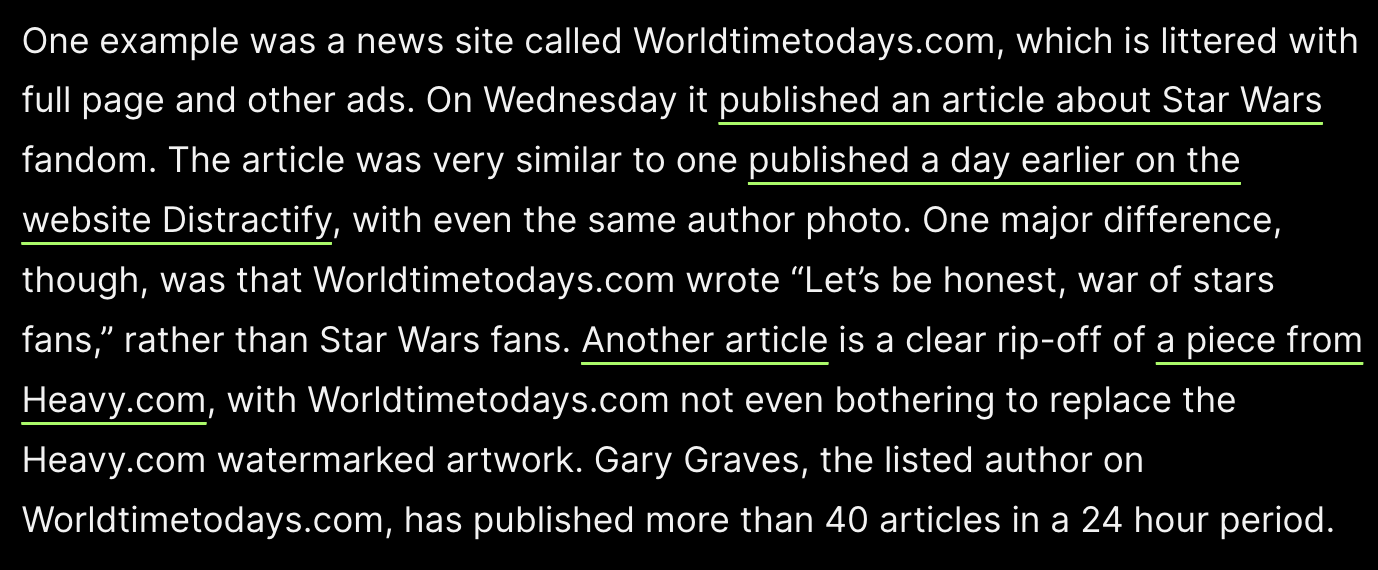 Screenshot from Google News, January 2024
Screenshot from Google News, January 2024This gives both the original content creators and their competition valuable “link juice.”
Next, you have to focus on creating inbound links from other websites to your content. How?
4. Reach out to anyone who uses your original research for a link.
If you were truly the first person to discover a problem or share a story, you deserve credit for it.
The best way to get credit for your work is to contact the author of the content who used your research. Let them know that you would appreciate a link back to your article as credit for utilizing the information.
If the author doesn’t respond, you can reach out to the site’s editorial team or general contact form for revision requests.
Should these efforts not result in a response, you can give them a public nudge on X or the social platform they use most.
While some sites will give you credit with a link that offers the maximum possible SEO value, others will nofollow your link.
 Screenshot from Engadget, January 2024
Screenshot from Engadget, January 2024The nofollow effectively takes away some of its “boosting power” for search, although it could still lead to a boost in referral traffic, new subscribers, and new fans on social media.
In situations where your content has been stolen verbatim, and the site owner refuses to credit or remove your content, there is the option to submit a DMCA Takedown request.
As mentioned earlier, the last thing you want to do is link to sites that outrank you without credit – your links only help to “boost” the rankings of other sites higher in search results.
Screenshots are your best option for sharing uncredited mentions of your work on other sites.
The same also goes for social media. When you share another website’s link or tag a content thief’s username, you increase their referral traffic and engagement on that social platform.
Engagement – whether positive or negative – will boost that user’s visibility. Consider whether you really want to do this.
Conclusion
As Google continues to update its algorithm and add new generative AI features to search, it is important for website owners to monitor their site’s visibility in search results and continue to optimize their website content for search, social media, and additional traffic sources.
Featured image: Funstock/Shutterstock
Con información de Search Engine Journal.
Leer la nota Completa > Why Google May Rank AI-Generated Content Over Original News


